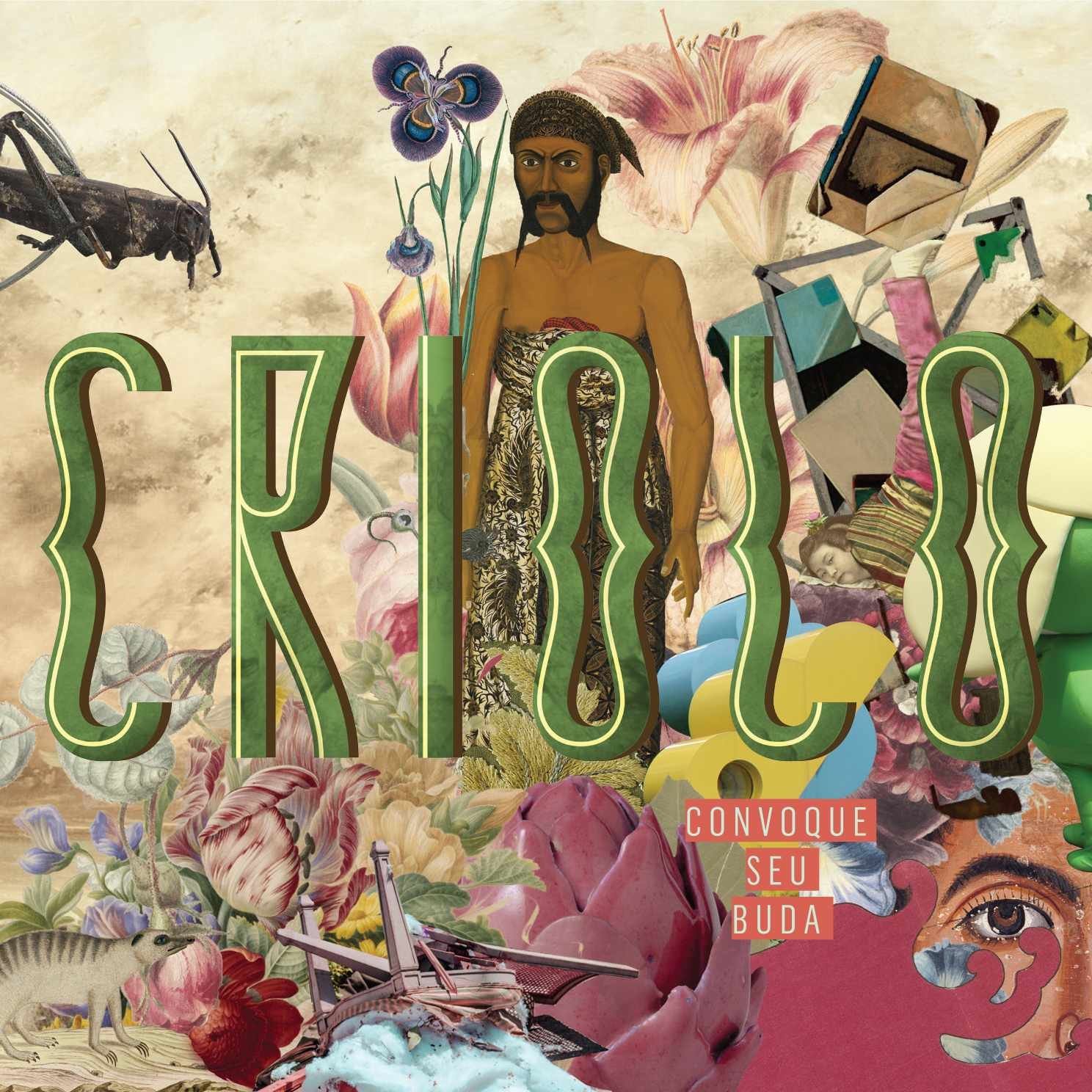It’s been three years since Criolo released Nó Na Orelha, the album that raised his status from underground São Paulo MC to internationally renowned representative of Brazil's hip-hop community. Without distancing himself from the socially conscious message that has defined São Paulo hip-hop lyrically, Criolo expanded the sonic possibilities of Brazilian rap. On Nó Na Orelha, that meant using dub, jazz and Afro-Brazilian-style production, assisted in part by Thiago França and Kiko Dinucci, members of one of São Paulo’s most experimental and thrilling ensembles, Metá Metá.
Criolo’s new album, Convoque Seu Buda (Summon Your Buddha) pushes his sound even further away from hip-hop conventions. This time, Criolo is joined by Money Mark, the producer and keyboarder, who was a longtime collaborator with the Beastie Boys. His appearance makes sense, as Convoque seu Buda shares the musically adventurous spirit of Beasties classics like Ill Communication and Hello Nasty.
The title track introduces Criolo’s expansive worldview, invoking Buddha and Shiva, along with Candomblé trickster spirit Ze Pelintra. Criolo describes the bleak poverty and violence of the favelas, but as much as he concentrates on problems of Brazilian society throughout the album, the feeling is never hopeless or downbeat. One of the album’s catchiest tracks, “Cartão de Visita” attacks income inequality and government corruption, while the uptempo production is reminiscent of DJ Quik’s boisterous G-funk. The song is backed up by exquisite singing from Tulipa Ruiz and a killer electric guitar riff.
The stylistic diversity on the album is reminiscent of Paraíso da Miragem, the outstanding recent album by Criolo's labelmate on Oloko Records, Russo Passapusso. On “Fermento Pra Massa,” a beautiful samba pop track arranged by Kiko Dinucci of Metá Metá and Rodrigo Campos, Criolo sings as naturally as he raps. That's followed by “Pé De Breque,” on which Criolo pays homage to the classic sound of dub, and the Rastafari beliefs that, like Buddhism and Candomblé, provide a way to transcend the “malade na Babylon” (wickedness in Babylon).
Criolo’s music contains multitudes: Chewbacca, Foucault and Absolut all show up in the misty slow-burner “Duas De Cinco,” which samples “California Azul” by Campos. The album closes with “Fio De Prumo (Padê Onã),” another spiritual invocation, this time to the Orisha spirits of the Yoruba religion. The song, which features enchanting vocals from Metá Metá's Juçara Marcal, prays for peace amongst the misery of the favela.
This is an album that examines Brazilian identity in all its complexities, the country's deep ties to Africa and the Afro-diaspora, and the inescapable issues of race and class in its society today. Even though Convoque Seu Buda has completely obliterated any of the boom-bap conventions Brazilian hip-hop was once known for, Criolo stays committed to the favelas, delivering the powerful message that whether you pray to Jah, Shiva, or Ze Pelintra, you can find ways to overcome the madness.








